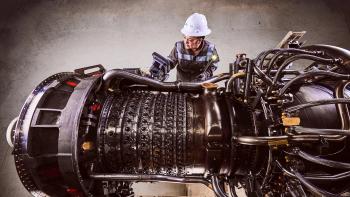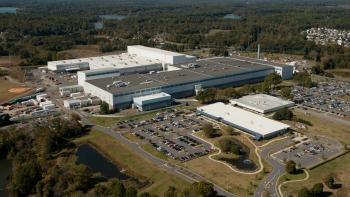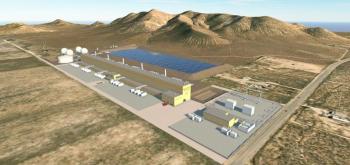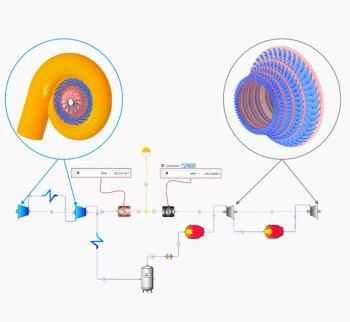
- Handbook 2026
- Volume 66
- Issue 6
Usual Difficulties & Challenges with Gear Units in Turbomachinery Trains
Key Takeaways
- Gear units in turbomachinery are complex, sensitive, and require careful commissioning and maintenance due to operational challenges and risks.
- Wear and degradation in gear units arise from constant sliding and rubbing, leading to low-life and high-wear rates.
When using gear units within turbomachinery trains, operators should consider wear and degradation, torsional problems, lubrication, and more.
A gear unit (or gearbox) in a turbomachinery train is usually a complex piece of machinery that requires careful application. Any small mismatch could lead to a problem; obviously, there are risks involved with such a gear unit. In other words, gear units are sensitive equipment which require special commissioning procedures and intensive, costly maintenances.
A gear unit’s power losses should also be considered; however, power losses should not be high enough to discourage the application of gear units and may not be significant enough to cause a drastic change in simple commercial evaluations used in industry. The main concerns are operational problems, difficulties in commissioning, delays/shutdowns, and risks associated with gear units cannot be properly incorporated into commercial evaluations. For many turbomachinery trains, gear units have been employed for different reasons. In fact, for some turbomachines, the use of gearboxes is the only possible option. However, it is preferable to avoid gear units.
In this column, the typical risks, difficulties, and problems of gear units are discussed. The focus of this column is not to prevent the application or use of gear units, but to identify all the challenges, difficulties, and risks for an informed decision.
WEAR & DEGRADATION
The operation of gear units—even normal operation—is always associated with wear because the gears are frequently sliding and rubbing. The low-life and high-wear rates of gear units should also be noted. The following degradation/damaging modes need to be considered:
- Gear or tooth low/high cycle fatigue due to torsional vibration, misalignment, or overload (due to excessive power, etc.).
- High-wear rates caused by rubbing and excessive deformations.
- Overheating issue, typically because of inadequate lubrication oil.
- The complex lubrication oil issues/problems in gear units.
TORSIONAL PROBLEMS
Gearbox-driven turbomachinery trains are usually subjected to complex torsional issues. Too often, gear unit operational problems appear during the start-up of a new turbomachinery installation and are sometimes related to torsional vibration issues. When selecting and applying a gear unit for turbomachinery, a critical engineering step is to perform a proper torsional analysis. The biggest challenge with torsional analyses is that some input parameters, such as different stiffness/damping factors, shaft geometries, operating ranges, and rotating inertias, may not be available or the sub-supplier may not share them.
Inaccurate data have caused unsuitable torsional studies and resulted in many operational issues or gear unit failures. A resonance for a torsional critical speed (particularly the first torsional critical speed) may result in a high vibration. This high vibration may cause a trip and, if the trip level is increased to let the turbomachinery operate, the fatigue associated with vibration or the premature failure may occur.
ANOTHER HEADACHE: LUBRICATION
Gearbox operation depends strongly on the lubrication oil. An issue that usually leads to failures in gear units is inadequate or improper lubrication. Improper lubrication can be related to many sources, such as the lubrication oil flowrate (high or low rates), an incorrect type of lubrication oil, or the lubrication oil’s degradation. It is critical to use the correct lubrication oil, proper oil flowrate, and a suitable lubrication oil quality for any gear unit. The lubrication oil in a gearbox-driven turbomachinery train is supplied by a common lubrication oil system. A major problem is that a compromised lubrication oil type or oil skid could be selected for all equipment, which may severely impact the operation and reliability of the gear unit.
OTHER DIFFICULTIES
There are other root causes for gear unit failures. The gear unit sizing can be a major issue; undersized gear units have caused many operational problems; there have also been installation and commissioning issues. Commissioning issues are common for nearly all types of gear units. Commissioning problems for gear units are more complex, widespread, and difficult to solve.
Many gear units have been integrated in large turbomachinery trains and are currently in operation. Large-scale efforts, lengthy delays, and the high costs associated with gearbox-driven applications are typically ignored. The high vibration, high noise and significant dynamic forces for many gear units should also be highlighted. Sometimes, the vibration at no-load or part-load could be more than the vibration at the full load. This may seem a bit strange, but it’s the case for some gearbox-driven turbomachines.
Amin Almasi is a Chartered Professional Engineer in Australia and the U.K. He is a senior consultant specializing in rotating equipment, condition monitoring, and reliability.
Articles in this issue
3 months ago
Gas Turbine Industry 10-Year Outlook3 months ago
U.S. Power Industry Outlook 20263 months ago
Turbomachinery International: 2026 HandbookNewsletter
Power your knowledge with the latest in turbine technology, engineering advances, and energy solutions—subscribe to Turbomachinery International today.




